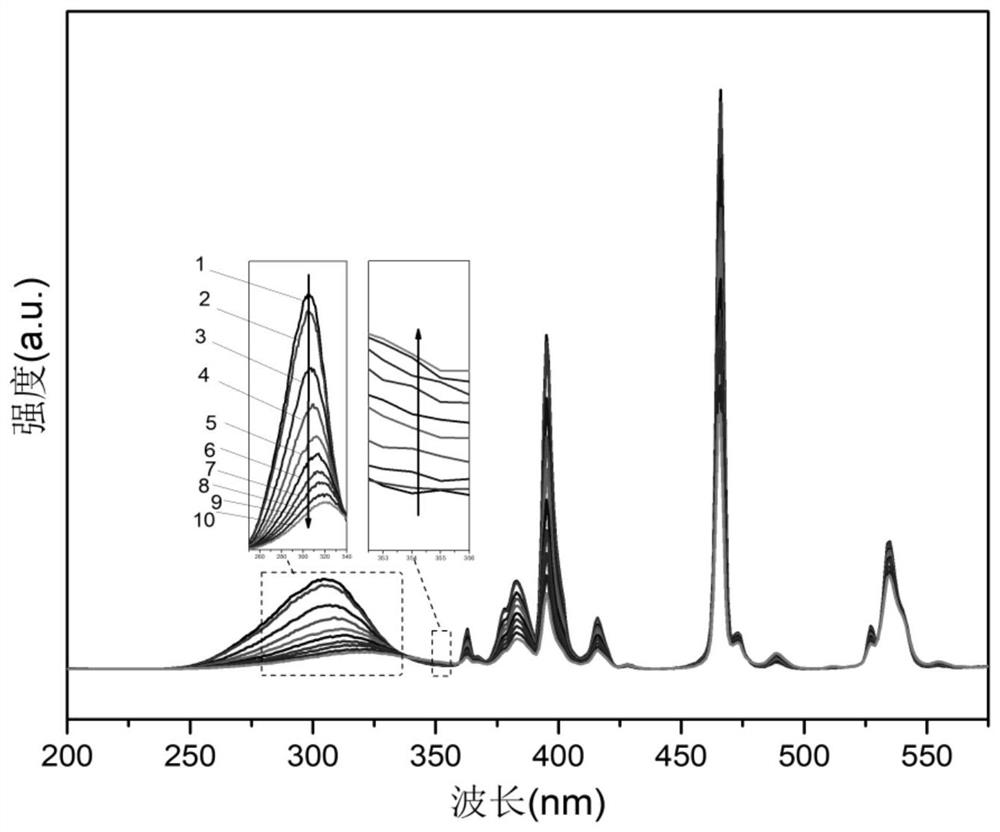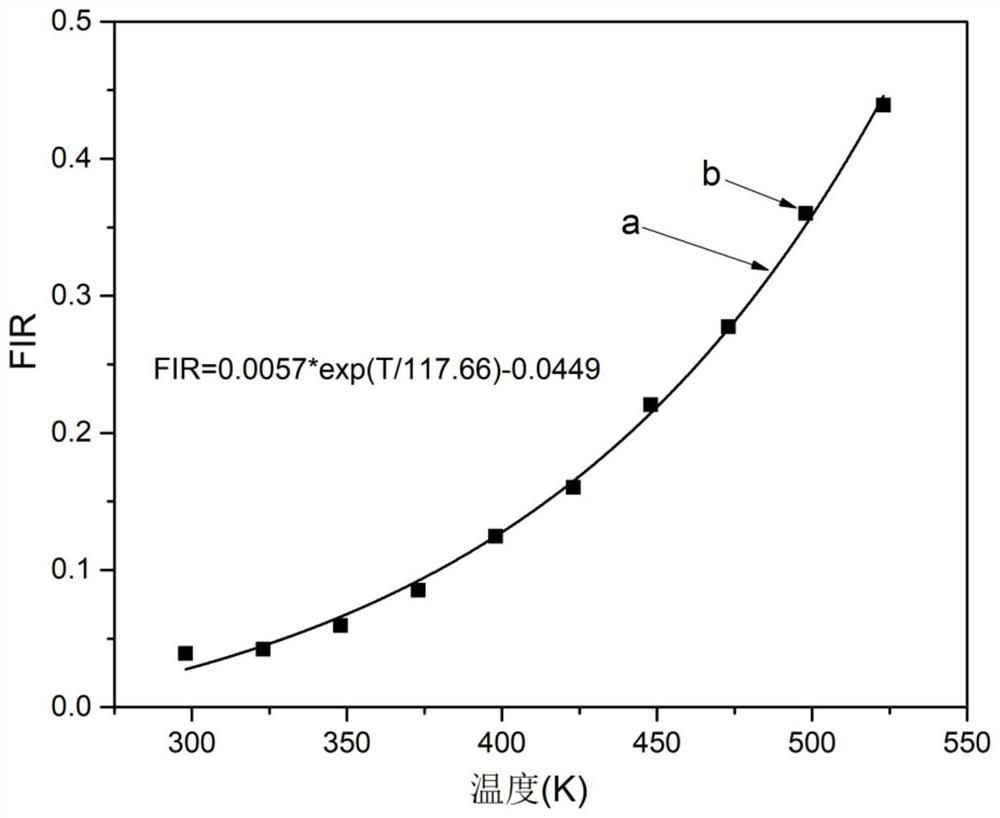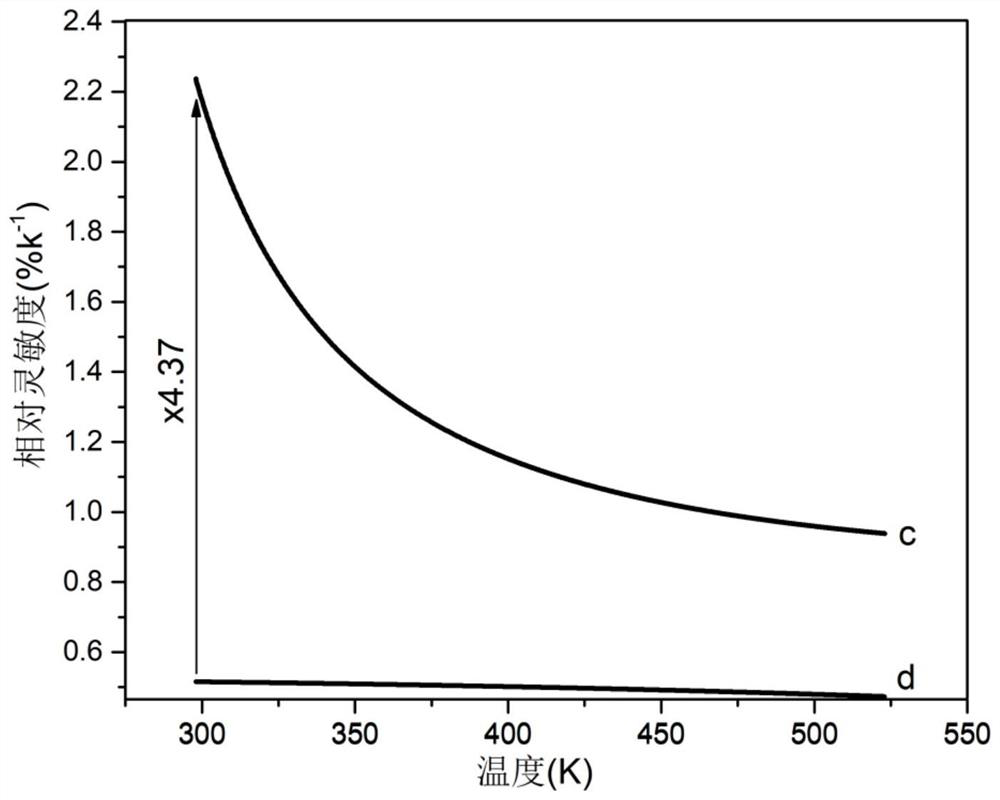Fluorescence intensity ratio thermometry method based on anomalous thermal quenching at the edge of the charge transfer band
A technology of fluorescence intensity ratio and charge transfer, which is applied in the field of fluorescence intensity ratio temperature measurement, can solve the problems of decoupling, thermal coupling energy level difference, etc., and achieve the effect of improving sensitivity and improving relative sensitivity
- Summary
- Abstract
- Description
- Claims
- Application Information
AI Technical Summary
Problems solved by technology
Method used
Image
Examples
specific Embodiment approach 1
[0025] Specific embodiment one: a kind of fluorescence intensity ratio thermometry method based on anomalous thermal quenching at the edge of the charge transfer band is carried out according to the following steps: (1) prepare NaLaCaWO 6 :Eu 3+temperature-sensitive material, and put the material in the high-temperature sample chamber of the fluorescence spectrometer FLS920, with a 450W xenon lamp as the excitation light source, and the temperature control platform adopts the TAP-02 (Orient-KOJI) that is matched with the spectrometer; (2) The temperature control platform is at 298 Heating to the temperature range of 523K, the temperature interval of each calibration temperature is 25K, the monitoring wavelength is set to 615nm, and the intensity of the sample excitation spectrum at 308nm and the intensity at the edge of the charge transfer band at 354nm are recorded. Integrate the fluorescence intensity band at 308nm of the excitation spectrum and the fluorescence intensity at...
specific Embodiment approach 2
[0029] Specific embodiment two: the difference between this embodiment and specific embodiment one is: NaLaCaWO in step (1) 6 :Eu 3+ The preparation method of the temperature-sensitive material is a high-temperature solid-phase method, the calcination temperature is 1250° C., and the holding time is 6 hours. Others are the same as in the first embodiment.
specific Embodiment approach 3
[0030] Specific embodiment three: the difference between this embodiment and specific embodiment one or two is: the NaLaCaWO prepared in step (1) 6 :Eu 3+ Eu in temperature sensitive materials 3+ The mole percentage is 30%. Others are the same as in the first or second embodiment.
PUM
 Login to View More
Login to View More Abstract
Description
Claims
Application Information
 Login to View More
Login to View More - R&D
- Intellectual Property
- Life Sciences
- Materials
- Tech Scout
- Unparalleled Data Quality
- Higher Quality Content
- 60% Fewer Hallucinations
Browse by: Latest US Patents, China's latest patents, Technical Efficacy Thesaurus, Application Domain, Technology Topic, Popular Technical Reports.
© 2025 PatSnap. All rights reserved.Legal|Privacy policy|Modern Slavery Act Transparency Statement|Sitemap|About US| Contact US: help@patsnap.com



